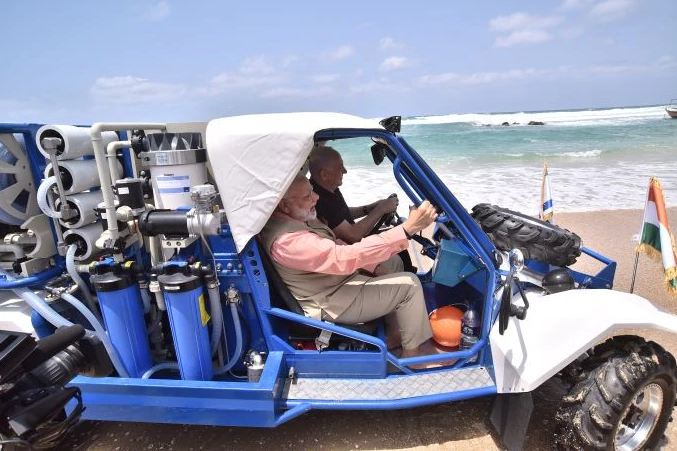When it comes to the most efficient management of resources, Gujarat is always on top. The administration of the state knows how to best utilize available resources. In terms of managing the water crisis as well, the Gujarat government seem to be working on a plan. The government will set up a seawater desalination plant with 100 MLD (Million Litre per day) at Jodiya in Jamnagar district.
Seven more such plants will be set up in Saurashtra-Kutch region with total capacity of 27 crore liters, said state minister Kunwarji Bavaliya during the assembly session.
To set up the Jodiya plant, the government will roll out a special purpose vehicle (SPV) named Jodiya Water Desalination Limited in Public-Private Partnership. The private players involved in the project are Essel Infraprojects Limited (EIL) and Spain’s Abeinsa Infraestructuras Medio Ambiente. The total investment in the project will be 750 crore rupees for initial set up and 100 crore rupees annually for the recurring cost.
The state government has provided land for the desalination plants. The state will purchase water at 70 paise per litre for two years. The cost of water supply would rise by 3 percent annually in subsequent years.
The other water treatment plants have been planned in Mundra, Mandvi, Dwarka, Porbandar, Sutrapada, Rajula and Ghogha and the tender for these projects has been issued by the state government.
In the last year’s ranking of states on composite water management by NITI Aayog , Gujarat came out as the best-performing state. NITI (National Institution for Transforming India) Aayog, is a policy think tank of the Government of India, established with the aim to achieve Sustainable Development Goals and to enhance cooperative federalism by fostering the involvement of State Governments of India in the economic policy-making process using a bottom-up approach. It has ranked all states on the composite water management index comprising of nine parameters and 28 indicators, which includes various aspects of groundwater, restoration of water bodies, irrigation, farm practices, drinking water, policy, and governance.
India receives high rainfall in comparison to countries like Israel, South Korea, and others, but water management is in very poor condition in India. However, countries like Israel which receive very little rainfall, never face water scarcity thanks to their superb water management techniques. Israel first used the technology to convert seawater to drinking water at a big scale and made the country water-secure.
Water conservation in the country is facing policy paralysis due to ignorance from previous governments. Availability of drinking water is a major problem in almost every Indian city because there is no efficient infrastructure for water delivery. Gallons of water gets wasted due to water management problems in our cities. Thousands of people suffer from life-endangering diseases due to the consumption of untreated water. We see that in cities like Mumbai and Delhi, many people stand in queue for hours to get a few buckets of freshwater.
In 2019 general elections manifesto, BJP promised that if elected to power, the government would launch ‘Jal Jivan Mission’ to ensure clean piped water to every household by 2024. “Water is a critical resource but its management is spread across various departments, even at the Central level. We will form a new Ministry of Water unifying the water management functions to approach the issue of water management holistically and ensure better coordination of efforts,” read the BJP’s vision document.
Gujarat government’s performance has been very good on water management. Other states and union government could learn from the state the techniques of water management.
